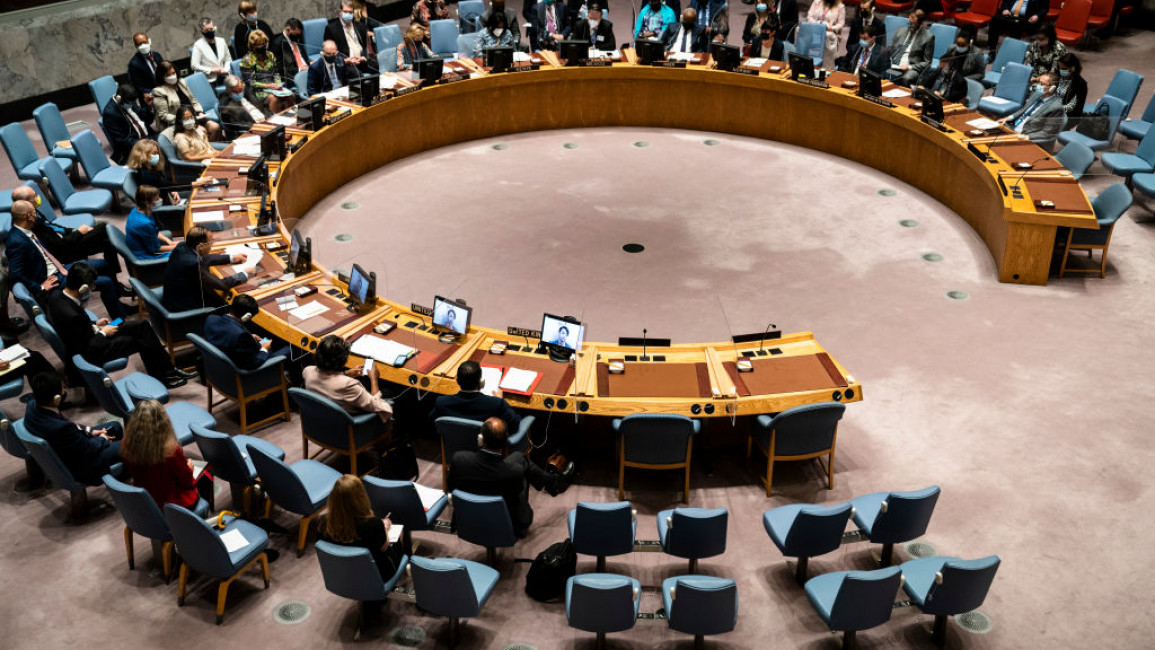UN extends searches on high seas off Libya coast for suspected illegal arms
The UN Security Council approved a resolution Friday extending the authorisation for countries and regional organisations to inspect vessels on the high seas off the coast of Libya suspected of violating the UN arms embargo on the troubled north African nation.
The vote on the French-sponsored resolution was 14-0, with Russia abstaining. The brief resolution extends the authorisation for inspections for a year.
The monitoring effort has been carried out since March 2020 by a European Union mission called Operation Irini, the Greek word for “peace.” The EU said at the start that it would have as “its core task the implementation of the UN arms embargo through the use of aerial, satellite and maritime assets.”
Russia’s UN Ambassador Vassily Nebenzia said Friday that when Irini started Russia hoped the inspections would contribute to reducing illegal arms trafficking “and therefore promote the long-awaited political settlement of Libya’s protracted conflict.”
“However, this never happened,” he said, explaining that Operation Irini and its predecessor, Operation Sophia, have not had “any successful cases of interception of smuggled goods.”
Nebenzia said Russia will monitor Irini’s activities in the next 12 months and “we will focus on whether the operation is efficient in curbing the illegal arms flows and complies with the Law of The Sea.”
In its first two years of activity, Operation Irini said it investigated more than 6,200 ships, conducted almost 250 visits (also known as friendly approaches) onboard merchant vessels, and 22 inspections. One illegal cargo ship was seized, preventing an illegal export of jet fuel for military aircrafts to Libya, it said.
Irini said it regularly monitors transport activities at 16 Libyan ports and oil facilities and 25 airports and landing strips.
Oil-rich Libya plunged into turmoil after a NATO-backed uprising in 2011 toppled dictator Muammar Gaddafi, who was later killed. It then became divided between rival governments — one in the east, backed by military commander Khalifa Hifter, and a UN-supported administration in the capital, Tripoli. Each side is supported by different militias and foreign powers.
In April 2019, Hifter and his forces, backed by Egypt and the United Arab Emirates, launched an offensive to try and capture Tripoli. His campaign collapsed after Turkey stepped up its military support for the UN-supported government with hundreds of troops and thousands of Syrian mercenaries.
An October 2020 cease-fire deal led to an agreement on a transitional government in early February 2021 and elections were scheduled for last Dec. 24 aimed at unifying the country. But they were canceled and the country now has rival governments with two Libyans claiming to be prime minister.

![Morocco Israel [Getty] Morocco Israel [Getty]](/sites/default/files/styles/image_330x185/public/media/images/AE22E2B5-5046-42CE-AA20-F9869E5A1E9B.jpg?h=d1cb525d&itok=9YeA_Yk1)

